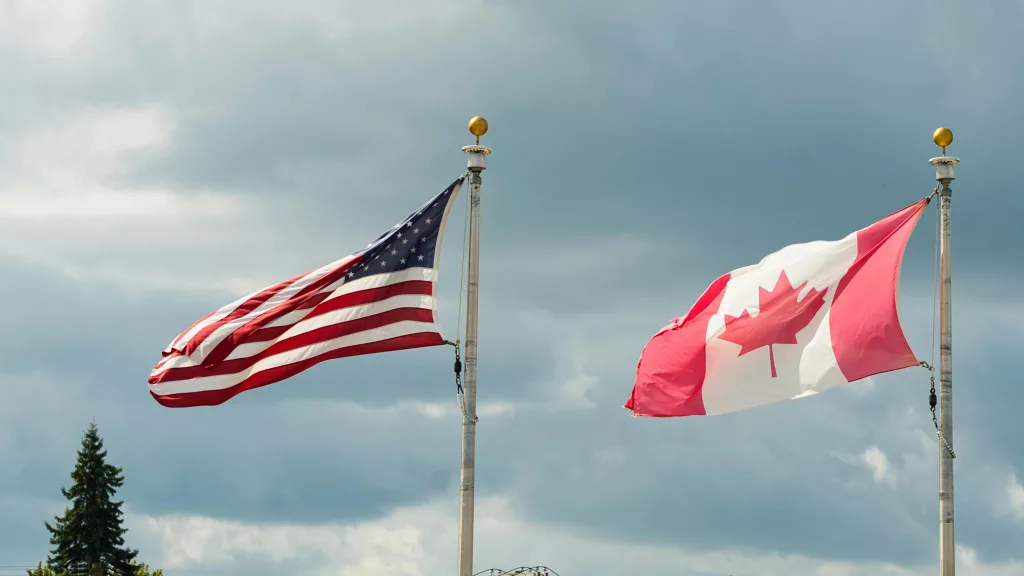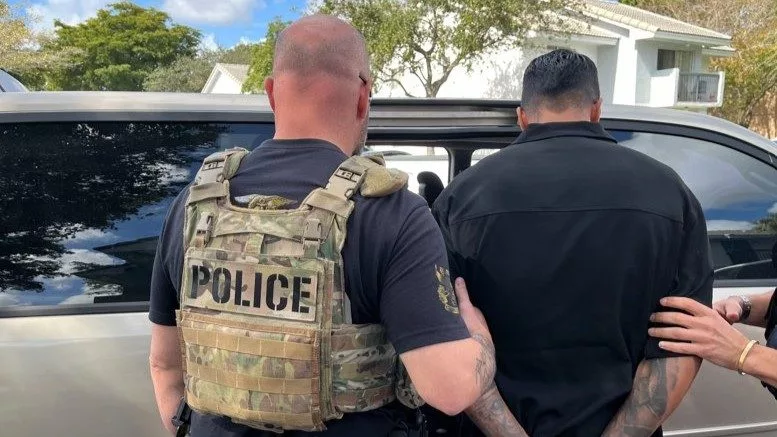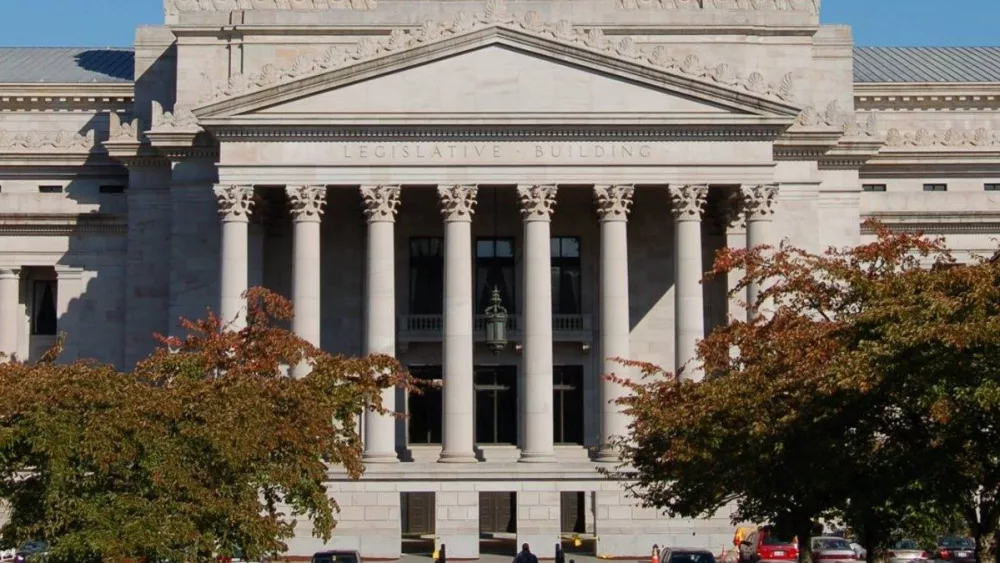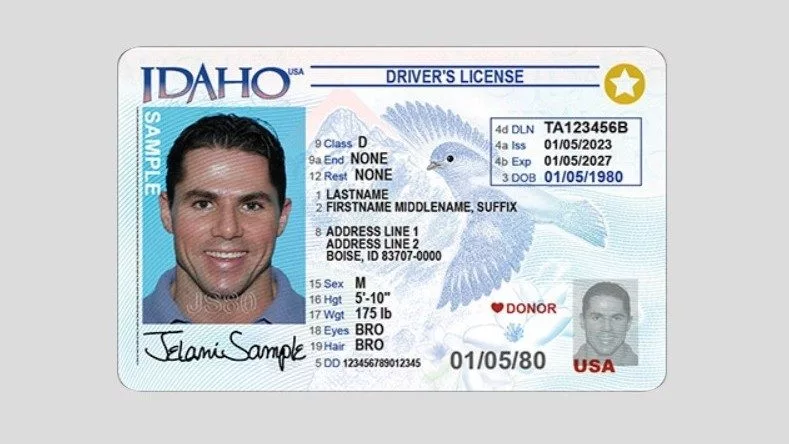OLYMPIA, WA – Top aides in Washington Gov. Bob Ferguson’s office debated plans earlier this year to send 200 National Guard troops to the Canadian border to assist with the Trump administration’s attempts to stop drug trafficking.
Ferguson ultimately decided not to pursue the plan.
But Washington military officials went so far as to draft a letter on the governor’s behalf pitching the idea and commending President Donald Trump for his “continued efforts to combat the flow of illegal narcotics through the northern border.”
While the letter was never sent, the episode offers a window into how the new governor’s administration was trying to strike a balance working with a president whom Ferguson himself has sparred with repeatedly and who is deeply unpopular in much of Washington state.
The Standard obtained the letter — addressed to Trump, Defense Secretary Pete Hegseth and Homeland Security Secretary Kristi Noem — through a public records request.
Ferguson’s communications director, Brionna Aho, said this week that Ferguson did not request the letter and did not write it himself, even though it was drafted as though it were from him.
She said the letter was rooted in discussions between the governor’s office and the Washington Military Department about the potential for Trump to federalize the state’s National Guard.
State Adjutant General Gent Welsh raised this possibility based on conversations with federal officials and media reports, Aho said.
As adjutant general, Welsh commands the state’s National Guard, directs the Washington Military Department and serves as the governor’s homeland security advisor.
In early February, Welsh reached out to Ferguson’s chief operations officer, Shane Esquibel, to raise the issue. To avoid federal activation, the governor could deploy the state’s National Guard “for a defined mission that is consistent with Washington’s values,” Aho said.
On Feb. 7, Ferguson’s top advisors met with officials from the Military Department, which drafted the letter ahead of the meeting to discuss.
Esquibel, now the governor’s interim chief of staff, briefed Ferguson on the proposal, but the governor decided against it, according to Aho.
“As you can imagine, many ideas are presented to the governor,” Aho said in an email. “The governor does not take action on all of them. This is one example.”
‘Ready to support’
The draft letter says “Washington is fully committed to partnering with the Departments of Homeland Security and Defense to confront” traffickers moving fentanyl and other illegal drugs.
The National Guard troops would have been ordered to “help with communications center support, analysis, transportation and construction, or any other mission deemed appropriate for DoD support,” so border patrol agents could focus on enforcement.
Ferguson would have deployed the troops under Title 32 502(f) orders, meaning they would be under the governor’s control while the federal government foots the bill. Such orders are rare in Washington.
The last Title 32 502(f) order was during the COVID-19 pandemic, said Karina Shagren, a spokesperson for the Washington Military Department.
And the last time Washington’s National Guard troops were sent specifically to the state’s northern border was in the early 2000s, Shagren said. In that case, the president federalized the troops under Title 10, meaning the federal government controls their orders.
The letter also notes Washington stands “ready to support the Canada-U.S. Joint Strike Force,” a new partnership that aims to combat transnational drug trafficking, money laundering and other organized crime. “I am prepared to allocate any necessary resources to ensure its success,” it says.
Ferguson has championed a bill in the state Legislature to give him the authority to stop National Guard troops from other states from deploying in Washington. House Bill 1321 has passed both chambers and now awaits the governor’s signature.
‘Where we can’
The Canadian border has been a flashpoint in the opening months of the second Trump presidency, with relations between the two allies souring and repeated calls from the president to make the neighboring country the 51st U.S. state.
Trump kicked off his term with the threat of tariffs to get Canada to boost border security and stop drugs from crossing into the United States. After former Prime Minister Justin Trudeau in February committed more resources to fentanyl trafficking enforcement, Trump briefly called off the import taxes.
During his gubernatorial campaign last year, Ferguson committed to convening a statewide “crisis response unit” focused on the fentanyl crisis and called for boosting state funding for drug task forces.
In his Jan. 15 inaugural address, the governor pledged to work with the president “where we can,” while also saying, “We will stand up to him when we must.”
Almost immediately after Trump took office, less than a week after Ferguson was sworn in, new tensions began to build between the state and the president.
As attorney general, Ferguson sued the Trump administration dozens of times during Trump’s first term. The state is now involved in 11 lawsuits against the second Trump administration, brought by Attorney General Nick Brown over everything from federal funding freezes to efforts to restrict birthright citizenship.
Washington State Standard is part of States Newsroom, a nonprofit news network supported by grants and a coalition of donors as a 501c(3) public charity. Washington State Standard maintains editorial independence. Contact Editor Bill Lucia for questions: info@washingtonstatestandard.com.





